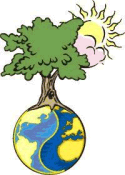 |
Natural Systems SolutionsReconnecting with Nature
|
|
"If they can get you asking the wrong question, they don't have to worry about the answers." |
||
|
Home Overview Philosophy Personal Therapy Organizational Consulting Community Sustainability Campaign for Our Lives Events, Meetings Natural Systems Blog Biographies Contact Information Projects Articles EcoQuotes Links Donate |
Open QuestionNatural Systems Solutions has recently hosted two screenings of the documentary "What a Way to Go: Life at the End of Empire," with more upcoming. While we don't consider this your typical gloom -n- doom movie, its not light entertainment. The film's producer and director suggest holding open discussions after the film to help people process their reaction and think about what they'd like to have in their lifeboat, which we've been doing using the Open Question Circle process. The Open Question is a way for communicating desires within a certain context. It features respectful deep listening, and encourages a person to say what's on their mind without fear of interruption or criticism. Participants get in small circles of 4-7 people, and answer a three part question asked by the person next to them in a sentence or two for each part. The participant across the circle writes down the core idea expressed on a sticky note. There is no crosstalk, although short clarifying questions can be asked. The basic framework is: what is one thing [context], what would that do for us, and what would that do for you. The same question goes around the circle as many times as possible in the time alloted. By the third or fourth round, people go beyond the obvious, surface answers. The [context] for the questions we used was: What is one thing you could do, or would like to do, see, or participate in that would help Tucson survive and thrive the coming collapse? Phrased another way, what is one thing you'd like to see in our lifeboat? One thing the Open Question does is help us discover our shared commonalities. This becomes apparent when all the circles group their sticky notes on a large blank spot on a wall. I've grouped the answers from the circles held after the screenings we hosted at the end of November, 2007, and the beginning of January, 2008, about two-dozen people in all. The benefits listing comes from the second and third parts of the question. What would this do for you personally, and what would it do for us, where us is context dependent on the action or the speaker--for the world, community, neighborhood, activist group, or family. These classification categories of responses of one action people said they would take or an improvement they'd like to see are somewhat arbitrary, and as you'll notice, many could easily fit in categories other than where I've placed them. The categories are 1 ) basic needs, 2) getting around, 3) community, 4) production, 5) relationships, and 6) systemic change. The number in parenthesis is the number of times this action was mentioned. Basic Needs(5) Freecycling and sharing, (4) traditional local foods, (2) neighborhood gardens, (2) water efficiency, and (1) each - meet needs locally, community composting, natural health, farmer's markets. Getting Around(4) car pools and public transit, (3) community bikes. Community(3) Community center, and (1) each - public art and music, reduce chemical dependency by realizing it's a social problem, community policing, homeless housing, neighborhood sex ed and family planning, community ownership, community health care. Production(2) Stop sprawl stay at a sustainable size, (2) renewable energy, and (1) each - change our relationship to work, cooperative economy, refuse consumerism. Relationships(9) Build healthy community interrelationships, and (1) each - listen, elder care. Systemic Change(6) Relocalization, (3) general education and awareness raising, and (1) each - recognize our common resources for creating a new culture, non-hierarchical communications, increase women's role, do for others without monetary incentive, use views of wisdom traditions, recognize we're all in this together, have government reflect nature's wisdom. Benefits(9) More connections and participation, (4) clean environment, (4) increase community, (3) healthier, (3) know each other better, (3) lower fuel costs and energy use, (2) reduce corporate power, (2) create a sustainable future, (2) easier and more fun, (2) less resource use, and (1) each - reduce clutter, less traffic, accountable, less TV, more peaceful, police part of us, diverse alternatives, know how our social capital is spent, better managed cities, reduce auto dependency, less crime, respect for diversity. One thing that I think bears pointing out is that nobody mentioned widening Grant Rd., building a new convention center and hotel downtown, or building a bigger house further out in the foothills as the one thing they'd do, or list as a benefit having more money. No one mentioned better TV programming, more shopping choices, or any of the other things we're told give us the highest standard of living in the world. This provides a foundation, or a starting point, for larger community conversations on what we really want and what we should do differently as we craft creative and intelligent responses to global warming, Peak Oil, overpopulation, and the collapse of the unsustainable global growth economy. If you would like to schedule an introductory consultation session or arrange a presentation or workshop for your group, please contact nature@attractionretreat.org or give Dave or Allison, co-founders of Attraction Retreat and Natural Systems Solutions, a call at (520) 887-2502. |
|
"You didn't come into this world. You came out of it, like a wave from the ocean. You are not a stranger here." |
||